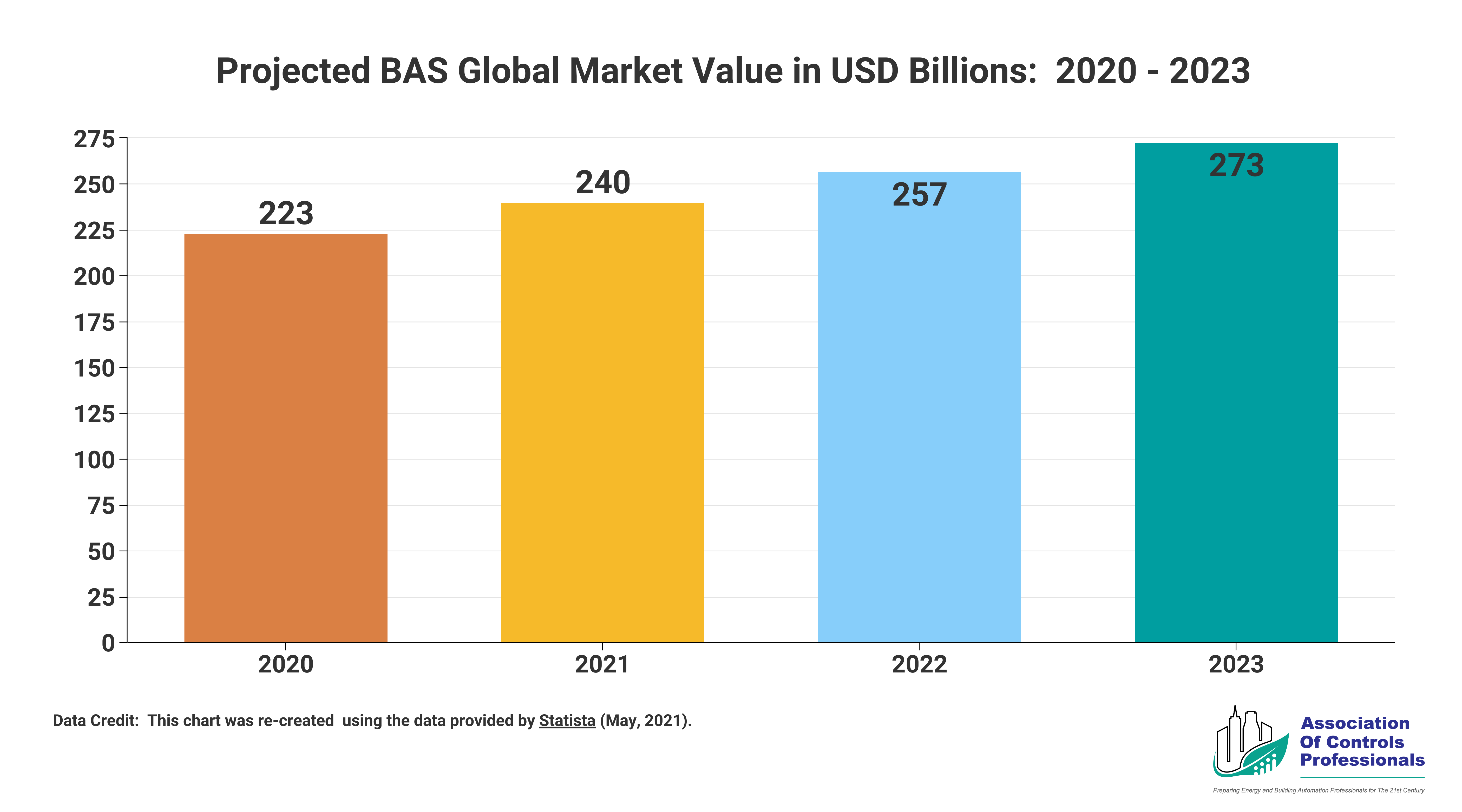
March 17, 2022
Dr. Sudeep Vyapari
Executive Vice President, Association of Controls Professionals
Email: sudeep@acprofessional.org
BAS Marketplace
The US commercial building automation systems (BAS) market, valued at USD 4.75 billion in 2020, is expected to reach USD 6.63 billion by 2026, registering a CAGR of 6.31% for 2021-2026. Globally, the commercial BAS market size is expected to increase by USD 18.97 billion from 2021 to 2026, at a CAGR of 8.98%. The projected value of the BAS market worldwide is estimated to reach USD 273 billion by 2023.

What is Driving the Higher Market Growth Rate of BAS?
Despite the promising marketplace growth and opportunities, some of the following roadblocks continue to impact change and the necessary positive image of this invaluable occupational ecosystem.
Some Roadblocks
Establishing a Clarity on Defining Building Automation Systems
Building Automation Systems (BAS), a frequently used term, is not a monolithic occupation or concept. Numerous technical descriptions of BAS commonly share several conceptual and functional similarities. It is prudent to acknowledge that BAS should be defined as an ecosystem of multiple interrelated occupations from an occupational and workforce perspective.
The BAS occupational ecosystem comprises many traditional, existing, and emerging workforce opportunities that share a common denominator - management of building heating, ventilation, air conditioning, cooling, refrigeration, lighting, water circulation, security, and alarms while achieving the goals of energy efficiency. Innovative advances in cloud computing provide valuable tools and services to create the Internet of Things (IoT) applications in managing controls and optimal maintenance of residential and commercial buildings.
The following blog in the ongoing series shall focus on BAS ecosystem occupational definitions. Thank you for taking the time to read this article, and I welcome your feedback.

ACP is a 501 (c ) (3) non-profit tax exempt organization whose mission is to support educational initiatives to prepare skilled building automation systems professionals for 21st Century jobs
Contact Us Info@acprofessionals.org
